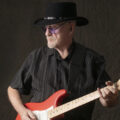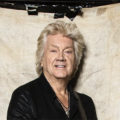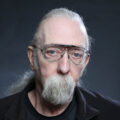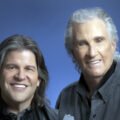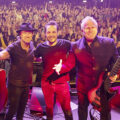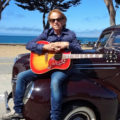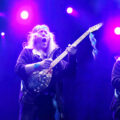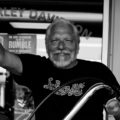Robby Krieger and City Winery will “Set The Night On Fire” with nothing but The Doors
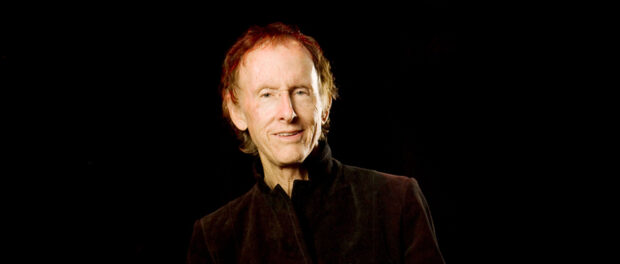
There’s no question The Doors completely revolutionized every aspect of the rock counterculture throughout the 1960s, but over a half-century later, the blues-soaked psychedelic experiments of late singer Jim Morrison, guitarist Robby Krieger, keyboardist Ray Manzarek and drummer John Densmore continue to resonate with just as much ingenuity.
Practically all the aggressive acts on earth cited them as an influence, Oliver Stone’s blockbuster biopic essentially laid the groundwork for the entire genre, while not a second goes by when the iconic likes of “Light My Fire,” “Riders On The Storm,” “Break On Through (To The Other Side),” “Hello, I Love You,” “Touch Me,” “People Are Strange,” “Love Me Two Times” and “L.A. Woman” aren’t circulating somewhere.
Chances are the City Winery will hear many of those and more when Krieger plugs in on Monday, June 24, though before he does, Chicago Concert Reviews got a rare call from the Rock and Roll Hall of Famer for a firsthand account of the magic and mania.
What’s in store for the City Winery?
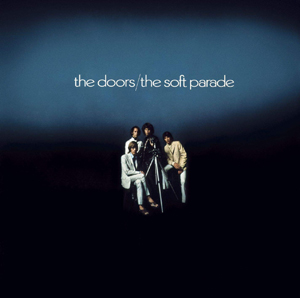 Robby Krieger: Well, Doors music mainly (laughs). What else? It is the 54th anniversary of “The Soft Parade” album, so we’ll be doing some songs from that as well as your other popular Doors songs. My son Waylon sings and also [producer] Paul Rothchild’s son [Dan, formerly of the alternative rock band Tonic] sings and plays bass with us. His son is a great bass player and singer. He’s been in the band for a couple of years now.
Robby Krieger: Well, Doors music mainly (laughs). What else? It is the 54th anniversary of “The Soft Parade” album, so we’ll be doing some songs from that as well as your other popular Doors songs. My son Waylon sings and also [producer] Paul Rothchild’s son [Dan, formerly of the alternative rock band Tonic] sings and plays bass with us. His son is a great bass player and singer. He’s been in the band for a couple of years now.
Do you have any memories of performing around Chicago?
Krieger: I don’t remember that much of the first time or two that we came, but we played in theaters, probably three or four thousand people size. We didn’t really get to hang out in Chicago like we did in New York and L.A., but later I did, when I had my solo groups. I made a lot of friends in Chicago. I knew some of the guys in the group Chicago and still do, Danny Seraphine, the drummer, and [late guitarist] Terry [Kath]. I was good buddies with Terry back in the day before he passed. And I’m a big golf nut. They have some great golf courses in Chicago and I spent a lot of time golfing there.
Since the last visit, you released the jazzy and experimental “Robby Krieger & The Soul Savages” record. What were you going for with that project?
Krieger: It just kind of happened by accident. Some buddies of mine that happen to live near my studio were coming over, and this was during COVID, so we spent quite a bit of time just jamming, six feet away from each other (laughs) or more, and started recording the stuff, and it just kind of happened that way. It’s really a good way to make a record because that’s why all the songs say “written by everybody,” just like back in The Doors days. Everything was written by The Doors, even though Jim Morrison wrote a lot of the lyrics. I wrote the other lot. Whatever Jim didn’t write, I wrote.
This is kind of similar because the four of us have our own ideas of what the song should be. Normally it starts off with the rhythm section just doing something, then Ed Roth, the keyboard guy and I, would come up with melodies and a song would grow from there. It wasn’t like one guy coming in with all the songs and the other guys are just sidemen. These guys have done that number and they don’t like [not being able to contribute to the writing]. I can’t blame ‘em. They’re just sick of that, but yeah, these guys are probably the best sidemen in the business, certainly around L.A. Kevin Brandino, the bass player, he played with Aretha Franklin for like 20 years and also Michael Jackson. This guy’s an amazing bass player and the keyboard guy, Ed Roth, who I mentioned, he’s played with a bunch of notable people, and the drummer, Franklin Vanderbilt, is also a very well-known drummer. He played with Lenny Kravitz for the last ten years, so these guys are like, they’re sideman, but they’re like pick of the litter sideman (laughs). Their dream is to be in a group and so this is kind of what we’re striving for…It’s for music lovers. A lot of people wouldn’t understand what we’re trying to do, but if you’re into music and you love great instrumental music, then you would like this.
You also became an author with “Set The Night On Fire.” Where are you hoping audiences will take away from the book?
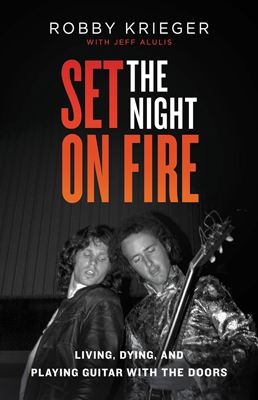 Krieger: I would hope that people would come away with a better idea of what the group was about cause a lot of people, all they know of The Doors is from the movie, or from one of the other books that are out, and all the other stuff is left out. I want people to get my idea of what it was like and just get it from me, you know?
Krieger: I would hope that people would come away with a better idea of what the group was about cause a lot of people, all they know of The Doors is from the movie, or from one of the other books that are out, and all the other stuff is left out. I want people to get my idea of what it was like and just get it from me, you know?
The movie was not completely accurate, but how could younger generations still benefit from seeing it and in what instances would you prefer that they read your book?
Krieger: (Laughs) I mean the movie is actually a really good movie. It’s a great rock and roll movie, and it does kind of give you an idea of what it was like to grow up in the ‘60s. The ‘60s was just an unbelievable time to grow up and to be at the age where you could play in clubs. The movie was a great peek into how it was to grow up in the ‘60s and part of the ‘70s. That’s the best part of the movie I think. It’s very difficult to really say what it was like coming up at that time and how great it was. Periods of history like that don’t happen very often and I just feel so lucky, and blessed, to have come up during that time. I hope that comes up throughout the book and the movie.
For those who weren’t there, was it as wild as it’s often portrayed?
Krieger: (Laughs). I think so. Yeah, definitely. For me, it was so crazy, and wild, and unbelievable. I didn’t realize how amazing it was at the time, so I just took everything in stride. “Okay, this is how it’s supposed to be.” Fifty years later, I realized how amazing it was and how lucky I was to have grown up at that time, and having your life’s work come out at that particular time.
There were, of course, many famous and some infamous concerts that The Doors performed. In the case of the infamous ones, do you think they helped or hurt you guys at the time?
Krieger: Um, a little of both. If the bad times hadn’t happened, would The Doors be as well known as they are now? That’s a good question. I don’t think if the bad ones hadn’t happened, I don’t think it would’ve killed us, you know? Really, we could’ve done without ‘em (laughs).
During the period with Jim, you recorded six albums in just about five years, which is remarkably prolific. What kept you guys firing at such fast speed?
Krieger: All of us had the feeling that maybe Jim wouldn’t be around all that much longer, and if he was, maybe he wouldn’t be coming up with these amazing words and his whole amazing personality, who knows how long it would’ve kept going? So we always had the feeling we gotta just keep going as fast as we can, keep this up, especially when Miami happened and we got banned from any of the good places to play, all over the United States. At that point we said, “Okay, let’s just go in the studio and just record every song we know, and let’s write some more. If they won’t let us play, we’ll do our own thing,” so that was a good thing because, like you said, it was pretty prolific at the time to do six albums in five years, or four really.
How would you describe continuing after Jim died and stepping up to the microphone?
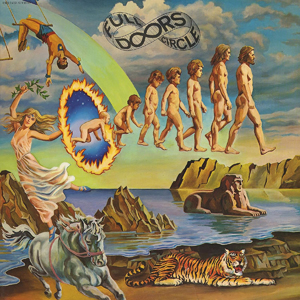 Krieger: After Jim passed, Ray and I both started singing and we didn’t really think of ourselves as singers. We said, “We can’t replace Jim.” How do you replace Jim Morrison? We didn’t even think about doing that, so we said “Okay, we’ll become an instrumental group or we’ll sing.” So we gave it a try and there are some people that liked it, other people probably didn’t, but we actually kept going at a pretty good pace after Jim died. About six months later we started to [work together] again. We made two albums, [“Other Voices” and “Full Circle”]. We did some tours. We did a tour of Europe playing pretty big places. [In New York] we played Carnegie Hall. We didn’t play that with Jim (laughs). Yeah, that was amazing and we played big festivals over in Europe. We could’ve actually just kept going had we been able to get along. After Jim was gone, the balance of the band just wasn’t there anymore. We just kind of gave it up after a couple years.
Krieger: After Jim passed, Ray and I both started singing and we didn’t really think of ourselves as singers. We said, “We can’t replace Jim.” How do you replace Jim Morrison? We didn’t even think about doing that, so we said “Okay, we’ll become an instrumental group or we’ll sing.” So we gave it a try and there are some people that liked it, other people probably didn’t, but we actually kept going at a pretty good pace after Jim died. About six months later we started to [work together] again. We made two albums, [“Other Voices” and “Full Circle”]. We did some tours. We did a tour of Europe playing pretty big places. [In New York] we played Carnegie Hall. We didn’t play that with Jim (laughs). Yeah, that was amazing and we played big festivals over in Europe. We could’ve actually just kept going had we been able to get along. After Jim was gone, the balance of the band just wasn’t there anymore. We just kind of gave it up after a couple years.
Shortly thereafter, you went in some interesting solo directions, particularly with jazz fusion. What were you hoping to explore when you first went off on your own?
Krieger: I didn’t really know. I just loved music, just wanted to explore as much as possible. I kind of wished now that I had done more flamenco because that’s what I first started playing back before The Doors. I actually did do a bit of flamenco on one of my solo records…I always loved jazz. That seemed to be an obvious way to go and I had made friends with a lot of jazz-type guys over the years. I had been playing with a lot of guys that had played with [Frank] Zappa for some reason. Yeah, my really good friend Arthur Barrow, he’s a bass player and he played with Frank. In fact, he was Frank’s [musical director] for a number of years. I played with him as kind of my MD for quite a while, on and off. I had some of Zappa’s horn players, crazy guys (laughs), and just lots of fun. My only problem was, of course, that people wanted to hear The Doors, so I always had to throw in some Doors wherever we played. It was kind of being a slave to your craft I guess, but there could be worse problems.
You eventually revisited the band’s material as part of The Doors Of The 21st Century with Ian Astbury from The Cult. What was it like bringing those songs back in their original form, more or less?
Krieger: Yeah, those were good tours. We had Ian. He did it with Ray and I for a number of years. And then we had some other guys that were really good too. Brett Scallions from Fuel played with us after Ian left. Miljenko Matijevic [from Steelheart], he was a great vocalist. The other singer was Dave Brock. He ended up being the last singer that Ray and I used for the Manzarek–Krieger band.
It was great to play with Ray again, because since Jim died, like I said, we did two albums. We did quite a bit of touring without Jim, just with Ray and I singing for a number of years. Then we went to Europe and we decided to look for a singer. At that point, this was maybe five years after Jim had passed and we tried a few guys over there. For some reason, we just started fighting. We couldn’t get along anymore. Ray’s wife Dorothy was pregnant, and she was going through some weird stuff, and Ray finally said, “Okay, I’ve gotta get out of here. Let’s give it a break,” so that was about 1975-ish and he started doing his own thing.
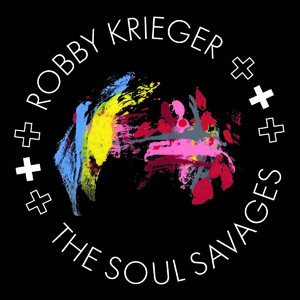 So John and I were over in England and we formed this band called the Butts Band. That was a pretty cool band. We had Phil Chen on bass, an amazing bass player. He played with Jeff Beck. We had the singer [Jess Roden], who was a really good singer, and Roy Davies that played keyboards. Then we brought the band over here to L.A. and I guess we just couldn’t get enough gigs to make it happen, so that kind of fell apart. John and I called it quits after that, so I didn’t play Doors songs for probably 20 years at that time after the break-up. I was just doing my jazz thing. John was doing his acting and stuff like that, and then the movie came out and there was more Doors talk going around. This was like back in the ‘90s, so then Ray and I got together one day and said, “Hey, why don’t we start playing some Doors stuff again?”…This was the year 2000 pretty much. We started playing with Ian, so that was kinda cool having that 20-year break. I still played one or two songs [during my solo tours]. If it was a jazz night, I would play maybe “Light My Fire” or one or two of The Doors’ songs, but the people were very cool about it. They didn’t shout “Light My Fire,” which I expected sometimes. [Since] this [“Soul Savages”] album came out in January, we’ve been doing quite a few gigs around California and it’s been great man. The people are really into the songs and they’re not worried about The Doors at all.
So John and I were over in England and we formed this band called the Butts Band. That was a pretty cool band. We had Phil Chen on bass, an amazing bass player. He played with Jeff Beck. We had the singer [Jess Roden], who was a really good singer, and Roy Davies that played keyboards. Then we brought the band over here to L.A. and I guess we just couldn’t get enough gigs to make it happen, so that kind of fell apart. John and I called it quits after that, so I didn’t play Doors songs for probably 20 years at that time after the break-up. I was just doing my jazz thing. John was doing his acting and stuff like that, and then the movie came out and there was more Doors talk going around. This was like back in the ‘90s, so then Ray and I got together one day and said, “Hey, why don’t we start playing some Doors stuff again?”…This was the year 2000 pretty much. We started playing with Ian, so that was kinda cool having that 20-year break. I still played one or two songs [during my solo tours]. If it was a jazz night, I would play maybe “Light My Fire” or one or two of The Doors’ songs, but the people were very cool about it. They didn’t shout “Light My Fire,” which I expected sometimes. [Since] this [“Soul Savages”] album came out in January, we’ve been doing quite a few gigs around California and it’s been great man. The people are really into the songs and they’re not worried about The Doors at all.
You’ve written tons of songs, but having just mentioned “Light My Fire,” what would you say that classic represents to you now?
Krieger: Gosh, you know that was the first song I ever really wrote and it’s very much been downhill ever since (laughs), which is a good problem to have on one hand, but to write a song like that, it’s very crazy…I feel so lucky to have written that song. I really wasn’t a songwriter at the time. Jim was writing the songs, which is the whole reason I wanted to be in The Doors because of his songs. He had such amazing words, but at one point, we said or he said, “Hey, you know what? We don’t have enough originals.” Cause we only had about ten original songs and we used to do a lot of other people’s songs, like [the blues standard] “Back Door Man,” stuff like that, so he kind of talked me into trying to write a song and that was the first one that came out.
Out of everything you did together, what makes you the most proud?
Krieger: Oh gosh, probably I would say the first album and the last album. “The Doors” and the “L.A. Woman” album. I think those are the best ones, and for me, they really represent from the beginning to the end and how the band kind of morphed from the early days to the last album.
How do you hope to go down in the history of rock?
Krieger: I hope to be top ten (laughs). Top ten would be fine. I think we’re considered top ten, but it all depends on [the number of influential newer bands]. I mean there really hasn’t been any top ten bands lately, at least not in my opinion, so I don’t have to worry too much (laughs).
What do you think made The Doors stand out to the point where we’re still discussing it?
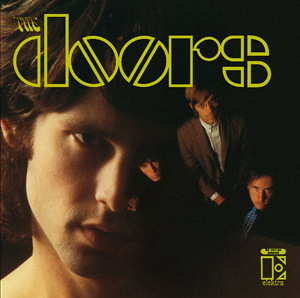 Krieger: Well, it’s obviously the songs, how good the songs were and how different. It’s not easy to have songs that are so good that people still talk about them fifty years later.
Krieger: Well, it’s obviously the songs, how good the songs were and how different. It’s not easy to have songs that are so good that people still talk about them fifty years later.
You continue to be very active in a variety of areas. What are you eying next?
Krieger: I’m doing artwork and hope to get some in Chicago at some point. But other than that, I just recently invested in this rocket company. There’s a lot of junk up there in space and these guys have got these little rockets that are very small, and they’re gonna tie ‘em together with a big net, and clean out all that s*** up in space. It just kills me that there’s so much trash up there and nobody’s doing anything about it. It’s crazy.
You’ve always had something to say in your music and came out at a time when activism was at its pinnacle. Do you have any thoughts on what we can do to better this planet right now?
Krieger: Well, it’s the same type of deal. Try to get music, which is the one thing that people agree on, and love, and use that as a basis to come together, and be able to talk to each other without bringing your guns. (Laughs) You can bring your guitar.
Robby Krieger performs at the City Winery on Monday, June 24. For additional details, visit RobbyKrieger.com and CityWinery.com/Chicago.

